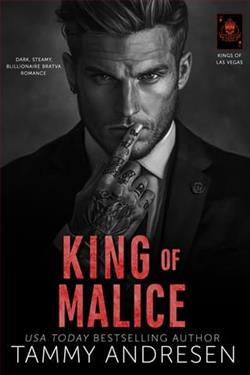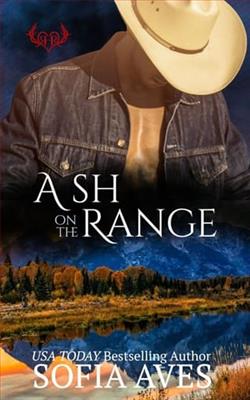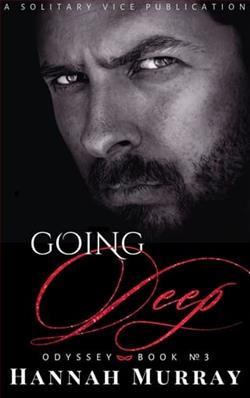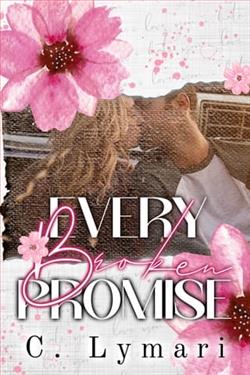Page 36 of The Dragon Ring
The once towering walls of what must have been an impressive city had been looted for stone down to ground level in places. Timber and rocks lay haphazardly in the gaps as though there’d been the necessity for speedy reconstruction. The gates, which should have been a key point in the defenses of the city, hung crookedly, half broken and patched, only one of them standing open to let us pass inside.
Despite my exhaustion and abominably aching legs, I gazed about myself with avid curiosity. The town’s narrow cobbled street stank of shit and rotting vegetation. The roofs of half the houses had fallen in, and pigeons roosted on their exposed and rotting rafters. Under our horses’ hooves, the cobbles were thick with dirt, and pigs snuffled in the rubbish-filled gutter, searching for tasty morsels.
A movement in a dark alleyway caught my eye; children, their scrawny bodies barely covered with filthy rags, scavenged in the muck that covered the street and alley.
I couldn’t suppress a gasp of horror. Merlin was so close he must have heard me, but he didn’t spare the children a glance. Ahead, the column of well-fed, well-clothed warriors rode on past all the poverty, their horses’ hooves clattering on the cobbles.
I reached over and put my hand on Merlin’s arm. “The children. Look at them. They’re starving. We have to stop and do something.”
He turned uncomprehending eyes to me. “What?” Looking where I was pointing, he frowned, but at me, not them. “What d’you expect me to do? This isn’t our city. They’re not our responsibility.” He could have been talking about some distant report on “News at Ten”, not these children, whose hollow eyes were devoid of hope, standing in the road, staring after us, barefoot and frozen.
For a moment, I was furious. “How can you just ride past them? None of you even looked at them. They need help.” My voice rose several notes.
He gave a dismissive shrug. “What do you expect me to do? There are people like this all over Britain– in every kingdom. I may not like what I see, but there’s nothing I can do to change it. And nor can you.”
Realization dawned. He was used to sights like this. They all were. I was just a visitor to his world, an observer of the poverty to which they were all inured. He was right; there was nothing I could do to change anything. No welfare state in the Dark Ages. No benefits if you were poor or unable to work. No help if your father or mother died. No handouts. No hospitals. No social workers if you were ill-treated. Nothing. Just poverty. And death.
A resolve seized me. If I was going to have to stay here and marry Arthur and become his queen, then I would make it my mission to help children like these. I twisted in my saddle to look back at them. They hadn’t moved. Their gaunt faces imprinted themselves on my retinas.Thiswas what a town in fifth-century Britain looked like. My father would have been shocked.
Further along, women leaned on a balcony overlooking the street. Not quite as dirty as the children, they were unlike any women I’d seen before. Greasy hair sat piled on top of their heads in sloppy curls above painted faces– lips bright red, cheeks rouged, black eye liner giving them a hint of the Egyptian. Grubby gowns slipped from pale shoulders to reveal pendulous breasts, the nipples artificially reddened like their cheeks.
One of them tossed her head carelessly at Theodoric as he rode beneath the balcony. “Hey, goldilocks, come up ’ere and tickle me with that moustache o’ yours!”
Theodoric, who must have been more tired than any of us, threw back his head and guffawed with laughter. “You wouldn’t be the first in this place to get a tickle out of me. I think I had your sisters last night.” He tossed her a coin, which she caught deftly in her hand and tucked into her cleavage. “Come to the Imperial Palace tonight and bring a friend, and there’ll be more of that.”
Another woman leaned forward over the balcony, bare breasts dangling. “Take a look at these bubbies, then. Ain’t they enough to get yer cock ’ard?” She put her hands underneath them and waved them at the passing riders.
Arthur turned in his saddle, a frown on his face, and said something in an undertone to Cei. Did he disapprove? The coarse cries of the women were left behind as we rode deeper into the decrepit center of the city.
I turned to Merlin. “What’s happened here? I thought this was a Roman city?”
Merlin grimaced. “It was. But things have changed since the legions left. We had plague in Britain forty years ago. It spreads like wildfire in crowded cities. The people died, and there were none to replace them. Empty houses quickly fall into disrepair.” He gestured at the tumbledown buildings we were passing. “Feeling against the Romans has been hostile since they left, because they wouldn’t come to help us when we begged them. The people decided they didn’t want Roman laws any longer, or reminding of the Empire. They pulled down the forums and basilicas to replace them with buildings of their own. Caer Baddan isn’t the only place this has happened.”
“I’ve been here in my time. I’ve seen the baths. They’re famous. Can you still use them?”
He gave a shrug. “After a fashion. I wouldn’t go there, though. You saw those women?” He didn’t wait for me to answer. “Well, the baths are full of others like them, and boys too. They cater for all tastes. And cut-purses. You go there, you take your life in your hands.”
“What happened to the people who survived the plague?”
“They left. Cities are hard to defend. The length of the walls is huge– if they’re still standing. It takes too many men to garrison a city against the Saxons or against the Irish.”
“You get raids by the Irish here?”
“From time to time they sail their ships up the Sabrina Sea.”
The estuary of the river I knew as the Severn. “But where are all the people?”
He gave a shrug. “Most of the people of Caer Baddan left forty years ago after the plague, when the Saxon raids were at their worst. They did the same thing as we’ve done at Din Cadan. They refortified the old hill forts, took to their farms if they had them, became tenant farmers if they didn’t. They went where they could defend themselves and where they could scratch a living. There’s only the dregs left in the city now.”
The road began to widen and the houses to look less seedy and dilapidated. In places they’d been cleared away, and barns had been built in their footprints, with livestock pens filled with scrawny cattle and pigs and small brown sheep. The farmyard stench was overwhelming.
“They bring the livestock in at nights for safety,” Merlin said, seeing the look on my face. “And all the grain stores are within the walls. Ramshackle as the defenses look, they’re enough to keep out the small raiding parties that might venture this far west. For the time being.”
The light was failing fast as we emerged into what must once have been the forum, the center of the Roman city. The stone remains of Roman splendor, pillars, and porticos with their brickwork showing through the cracked marble, stood forlornly cheek by jowl amongst the thatched buildings and animal pens. Here, in the gathering darkness, men were watering and feeding their livestock, pushing handcarts of hay across the uneven paving stones of the forum from the stacks of fodder beside the barns. Our horses’ hooves clattered, and heads turned to look at us in weary indifference.
Arthur threaded his way between the jumble of barns and pens toward a long, low building not unlike the hall at Din Cadan. The blackened thatch needed repair, and the whole place had an air of genteel dilapidation about it. Halfway along the side, double gates barred an archway.
Cei swung down from his saddle in front of the gates. He gave the heavy iron knocker on the right-hand gate a resounding thump, and then stepped back, hands on hips, waiting.















